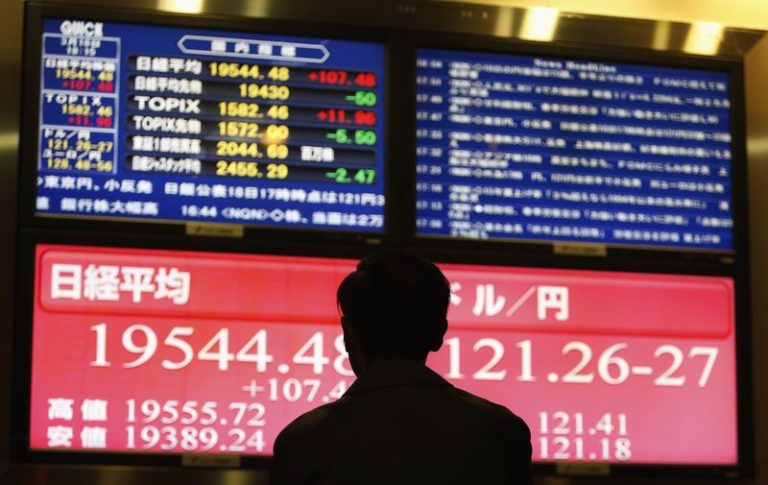Investing.com– Most Asian stocks rose on Thursday tracking a third consecutive record-high close on Wall Street amid a tech share rally, while South Korean equities extended declines on fears of a potential political crisis.
All three major U.S. stock indexes ended at record highs overnight as technology shares rallied after strong earnings from Salesforce (NYSE:CRM). U.S. futures were little changed on Thursday.
Regional investors also drew some comfort from U.S. Federal Reserve Chair Jerome Powell’s address at a New York Times event. Powell flagged strength in the U.S. economy and did not downplay expectations for a December rate cut, although he did flag a more cautious approach to future easing.
South Korean shares extend losses after martial law fiasco
South Korea’s KOSPI index fell 0.3%, after closing 1.3% lower a day earlier when President Yoon Suk-Yeol tried to impose martial law.
President Yoon declared martial law on Tuesday in an effort to counter “anti-state forces” among his political opponents, but revoked the measure within hours after he faced immediate backlash, including parliamentary rejection and public protests. This led to demands for Yoon’s impeachment by the country’s legislators.
South Korea’s Finance Ministry on Thursday announced a 40 trillion won ($28.35 billion) market stabilization fund after Yoon’s declaration disrupted markets. The Bank of Korea may buy bonds and expand repo operations, with authorities ready to act under contingency plans if necessary.
Other data showed that South Korea’s economy grew just by 0.1% in the third quarter, unchanged from advance estimates issued earlier.
This comes as country already faces sharp depreciation in its assets, including its stocks and currencies. The KOSPI has fallen nearly 7% this year, while the won has declined about 9% against the U.S. dollar. South Korea recently celebrated its inclusion into the FTSE Russell’s World Government Bond Index.
Concerns over a potential spillover in South Korea’s political turmoil kept sentiment towards broader Asian markets cautious.
Asia stocks drift higher, but sentiment cautious
Japan’s Nikkei 225 rose 0.7% on Thursday, while TOPIX was up 0.2%. Data on Wednesday showed that country’s service activity swung back to growth in November on improving demand.
Australia’s S&P/ASX 200 rose 0.4% after data showed that country’s trade balance rebounded in October on improved commodity demand, especially in top importer China.
China’s Shanghai Composite index was slightly higher, while the Shanghai Shenzhen CSI 300 index was largely unchanged.
Morgan Stanley said foreign investment in Chinese equities ended a brief two-month period of net inflows in November, amid caution over increased U.S. trade tariffs.
India’s Nifty 50 Futures indicated a positive open. Focus this week will be on the Reserve Bank of India (NS:BOI)’s interest rate decision on Friday.
Bucking the regional trend Hong Kong’s Hang Seng index fell over 1%, with Alibaba (NYSE:BABA) Group (HK:9988) shares falling over 2% and EV maker BYD Co (HK:1211) sliding about 3%, as a new round of US-China export curbs this week rattled investors.
Elsewhere, Philippine’s PSEi Composite index edged 0.2% lower, while Indonesia’s Jakarta Stock Exchange Composite Index was 0.3% lower.
Investors remain on edge as Asia faces heightened geopolitical risks, including the specter of U.S. trade tariffs under incoming President Donald Trump’s administration.
Focus this week is on key nonfarm paryrolls data in U.S. for more clarity on Fed’s interest rate outlook.

